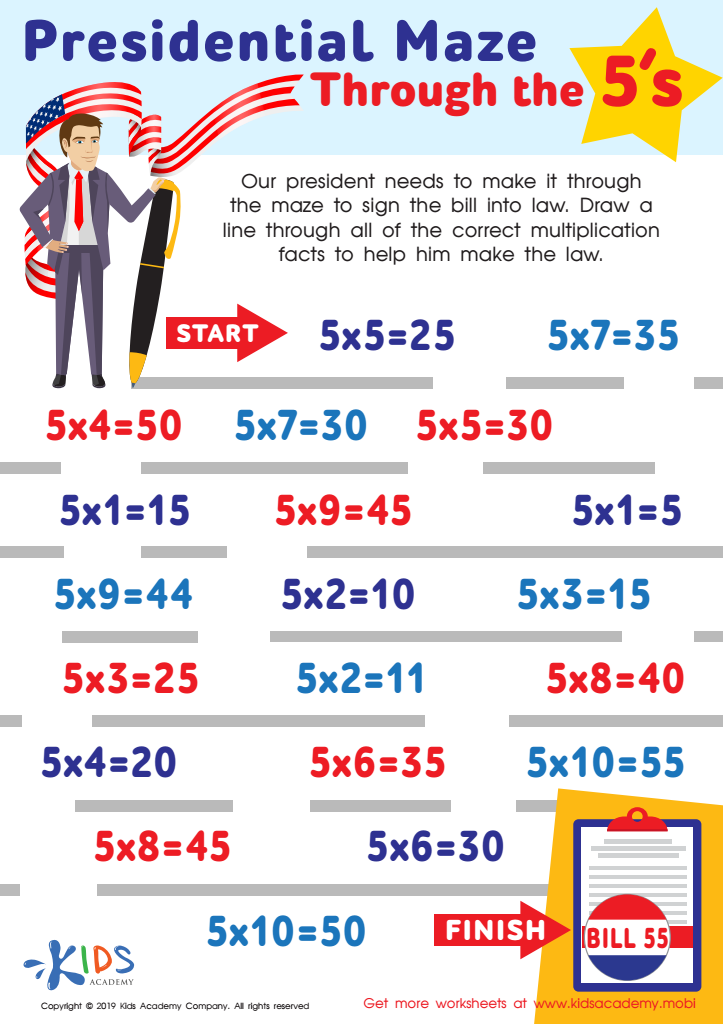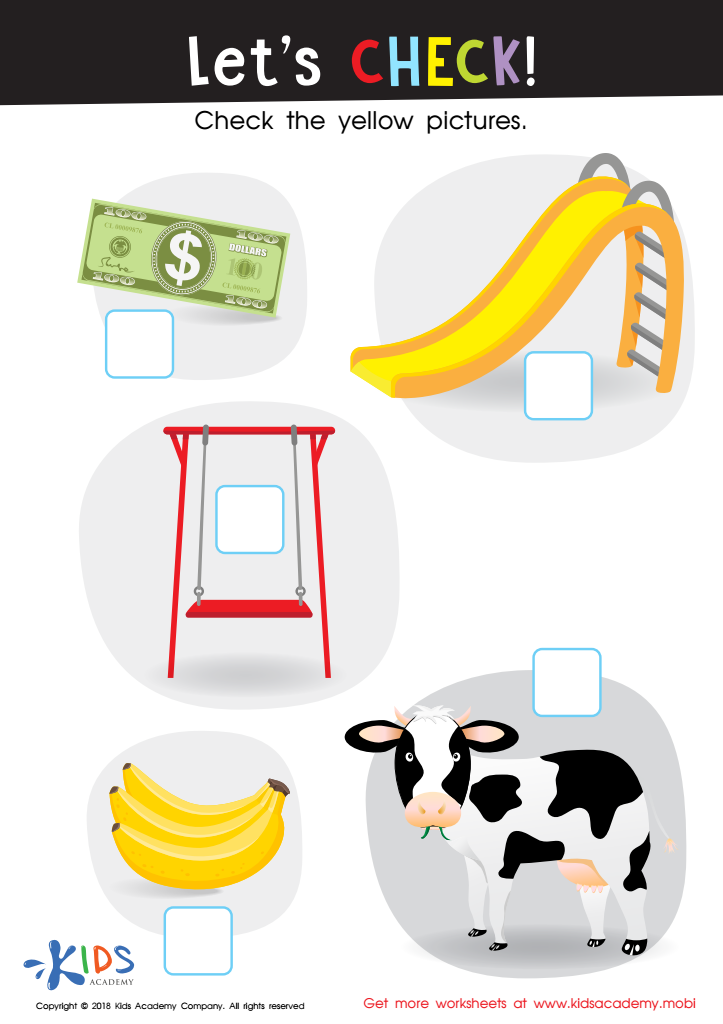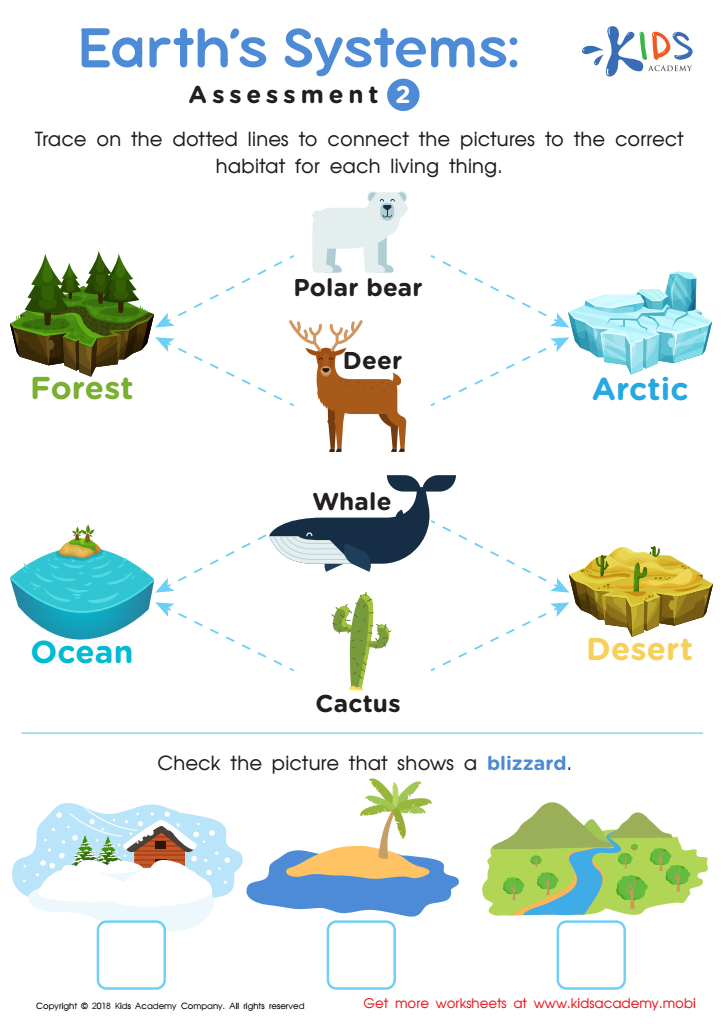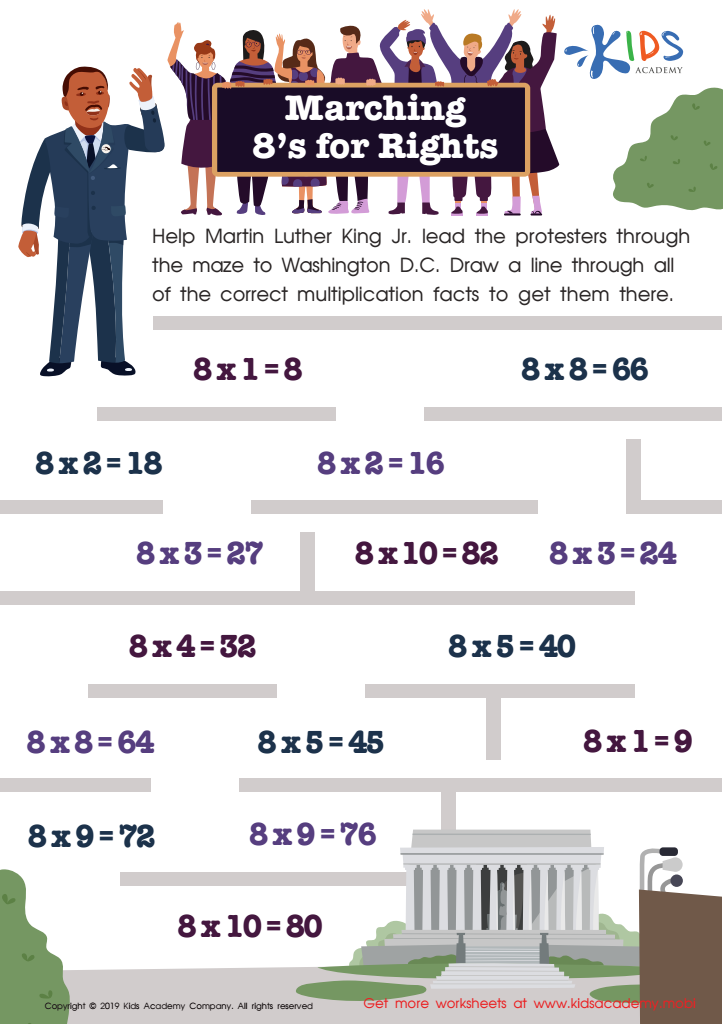Number Recognition Social Studies Worksheets for Ages 5-9
4 filtered results
-
From - To
Explore our engaging Number Recognition Social Studies Worksheets designed specifically for ages 5-9! Perfect for young learners, these worksheets blend essential number recognition skills with fascinating social studies concepts. Children will interactively learn numbers through fun activities that relate to their world. By connecting numbers to real-life scenarios, students enhance their mathematical abilities while discovering more about their community and society. Our user-friendly format ensures an enjoyable learning experience, allowing children to practice independently or with guidance. Foster a love for learning and enhance crucial skills with our thoughtfully crafted worksheets. Dive in today and watch your child thrive!


Presidential Maze Through the 5’s Worksheet


Let's Check! Worksheet


Earth's Systems: Assessment 2


Marching 8’s for Rights Worksheet
Number recognition is a fundamental skill that is crucial for the cognitive development of children aged 5 to 9. It serves as the foundation for various subjects, including mathematics and social studies. When children can recognize and understand numbers, they become more adept at navigating their environment and engaging with concepts like time, money, and measurement, which are often integrated into social studies.
Teachers and parents should prioritize number recognition because it fosters critical thinking skills. For instance, children can analyze population statistics, maps, and charts, which are common in social studies. This analytical approach not only enhances their mathematical skills but also aids in their understanding of societal structures and concepts like democracy, citizenship, and community involvement.
Furthermore, mastering number recognition empowers children to participate in discussions about real-world issues, such as economic inequalities or voting demographics. When children grasp numerical information, they develop a stronger sense of agency and awareness within their communities.
Ultimately, combining number recognition with social studies enriches children’s learning experiences and prepares them to be informed, responsible citizens. It equips them with the tools necessary to understand the world, leading to greater engagement and learning outcomes.

 Assign to My Students
Assign to My Students
















